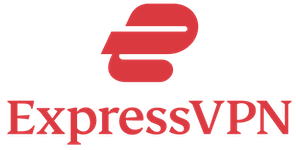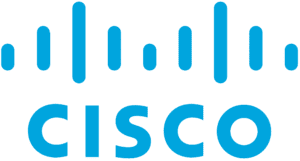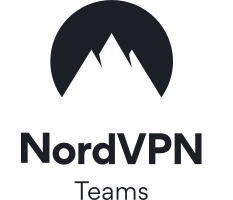Many businesses rely on Virtual Private Networks (VPNs) to provide remote access to company resources. Here, we discuss the best VPN solutions for businesses, as well as important features to consider.
Read more: Best Server Security Services
Best VPN Services
ServerWatch reviewed many VPNs. Here are our top picks, in no particular order:
Ananda Networks

Value Proposition
Ananda Networks targets small and medium businesses, as well as enterprises. Its service allows businesses to create their own private, secure, high-performance, low-latency networks to connect remote employees and edge devices to applications in the data center or in the cloud.
Key Differentiators
- Does not use legacy protocols that have been shown to have vulnerabilities
- Zero Trust network access principles provide fine-grained access to applications
- Contextual access policies are enforced, such as geo-fencing or checking the device’s posture
- Visibility into all traffic
- Micro-segmentation to prevent the risk of lateral movement
- Makes use of networking protocols to improve on VPN protocols that slow down traffic
- Can connect any two nodes directly or indirectly via global network of cloud-based relays
- Continuously optimizes the network protocol and relay selection
- No need to configure or hardcode IP addresses or desired gateway locations
Twingate

Value Proposition
Twingate positions itself as an easy way for IT departments to get rid of aging, internally managed VPN equipment. Instead, companies can hand over these functions to an external provider that can rapidly implement a modern Zero Trust network in the cloud. IT teams can use it to configure a software-defined perimeter without changing infrastructure, and centrally manage user access to internal apps, whether they are on-premises or in the cloud.
Key Differentiators
- Zero Trust architecture
- Delivered as a cloud-based service
- Can scale from 10 to 10,000 users
- Deploys in minutes
- Split tunneling reduces the network burden
- Intelligent routing eliminates backhauling
- ViPR technology in smart clients handles authorization and routing decisions on devices
- Load balancing, redundancy, and scaling managed by the provider
Untangle

Value Proposition
Untangle provides a number of choices for VPN connectivity for businesses, which include IPsec VPN, OpenVPN, and WireGuard VPN. WireGuard is the newest of these offerings; it offers a fast, reliable technology with high-level cryptography.
Key Differentiators
- Many options and services for a wide range of users
- Administrator has complete control of the VPN service
- On-premises or cloud deployed
- All VPN traffic flows through IT-owned infrastructure
- Ability to configure VPN exactly as needed
ExpressVPN

Value Proposition
ExpressVPN offers secure access worldwide to connect reliably from anywhere to anywhere. Its network of servers spans 94 countries. This service caters well to single users, as well as relatively small or changing groups of users who need a VPN without the more expensive bells and whistles of other services.
Key Differentiators
- Encrypts users’ web traffic and masks IP addresses
- Fast to set up and easy to manage
- Specific VPN apps available for Windows, Linux, Mac, IOS, Android, and other endpoints
- VPN extensions for leading browsers
- IT can have individual users set up the connection rapidly in emergencies
- 256-bit encryption
- Works on PCs, phones, tablets, and other devices
Cisco AnyConnect

Value Proposition
Cisco AnyConnect Secure Mobility Client provides remote workers with secure access to the enterprise network from any device, while also protecting the organization. It connects more than 180 million endpoints and serves 60,000 organizations.
It offers simplified deployment, configuration, updates, and management with one agent for VPN, device compliance, web content inspection, threat detection and remediation, and contextual behavior data. Cisco AnyConnect can enable the distribution of Cisco Secure Endpoint to remote users to detect and stop threats.
Key Differentiators
- User connections are directed through a filter for web threats
- End-to-end encryption, including data-in-motion
- Client authentication credentials apply web usage policies and security that can vary by user location
- Integration with Cisco Identity Services Engine and HostScan technologies
- Insight into user behavior and network and application access
- Has a range of access features from very basic VPN access to policy-driven access
- Integrates with the Umbrella Cloud for DNS security and SWG content
- Provides endpoint posture checks across wired, wireless, and VPN networks via Cisco Identity Services Engine
NordVPN Teams

Value Proposition
NordVPN Teams is the enterprise version of the well-known consumer and individual VPN product. It enables IT to manage every user account and feature from one centralized control panel. It is easy to use, and is said to fit organizations of all sizes — though it lacks some of the features of other enterprise-class tools.
Key Differentiators
- Dedicated VPN servers on premises and a dedicated IP address for every VPN account
- Third-party authentication is available via Okta, GSuite, Sami, Azure AD, and OneLogin
- Can deal with Windows, Android, Mac, Linux and iOS clients
- Possesses a network spanning thousands of servers in dozens of countries
- AES 256-bit encryption
- If a connection drops, the kill switch cuts off all internet traffic on the device
ProtonVPN

Value Proposition
Proton made a name for itself by offering highly secure email communication. Organizations sending sensitive or confidential information often use it. As such, a VPN from Proton will undoubtedly have a high stress on security. Its secure VPN sends internet traffic through an encrypted VPN tunnel. Passwords and confidential data stay safe, even over public or untrusted internet connections.
Key Differentiators
- Keep any browsing history private
- Does not log user activity or share data with third parties
- Anonymous VPN service that enables internet without surveillance
- Provides a free version of ProtonVPN with no catches, such as ads or selling browsing history
- Simplified, intuitive interface
- 10 Gbps server network combined with VPN Accelerator technologies can improve speeds by 400%
- Network TCP flow control algorithm provides high performance and connection stability
- Available for PCs, Macs, smartphones, and routers
Perimeter 81 Enterprise VPN

Value Proposition
Perimeter 81 provides several VPN packages. The Enterprise package is customizable and equipped with enterprise-ready security features to manage the network. It is available on-site and in the cloud. It offers Zero Trust, agentless access, as well as activity audits and reports to monitor logins, gateway deployments, and app connections.
Unlike traditional VPN service providers, which only offer secure remote access through an agent, Perimeter 81 also offers agentless Zero Trust Application Access. This enables granular, secure, and policy-based access. All corporate users are provided with 24/7 customer support via in-app chat, email, or phone. Further, a dedicated solution architect assists with all your account’s needs.
Key Differentiators
- Apps exist for all the major platforms: Mac, Windows, Android, and iOS
- Automatic WiFi security to protect devices connecting to unsecured public WiFi
- Multi-factor authentication
- Single sign-on capabilities are provided via Okta, GSuite, Azure AD, and Active Directory LDAP
- Zero Trust, agentless access
- Activity audits and reports to monitor logins, gateway deployments, and app connections
- DNS filtering blocks users from accessing specific websites, site categories, and IP addresses
- SIEM integration enables capture, retaining, and delivery of information and events in real-time
- Policy-based access to RDP, HTTPS/HTTP, SSH, and VNC applications
What Is a VPN?
Virtual Private Networks (VPNs) are a way to secure remote network access to cloud-based and on-premises resources. VPNs offer policy-based and segmented access to a private network, which shields sensitive resources from the internet. Employees can log in and communicate securely to others in the company.
For those working remotely, a VPN is a way for them to continue to have secure access to corporate intranets and databases. But they must properly complete authentication procedures to do so.
VPNs offer policy-based and segmented access to a private network.
Another use case for VPNs is in site-to-site links between the head office and its branch offices or partner sites. Again, authentication is everything. These links must only be available to authorized users.
As such, VPNs are available via on-premises hardware and software, as on-premises software-only applications, or via the cloud. They should be able to accommodate a wide variety of devices, while also providing WiFi connections to enterprise data, sales systems, and other company applications.
Once authorized, users utilize an encrypted tunnel to connect and communicate. Other layers of protection include site-to-site internet protocol security (IPsec) to establish, as well as various access controls and access policies.
Read more: Using Zero Trust Security to Protect Applications and Databases
How to Choose a VPN
Prioritize Security
When selecting a VPN tool or vendor, it is vital to ensure the appropriate levels of security are present. IPsec tunneling, encryption support such as AES-256, 3DES-168, and access controls are essential elements.
Minimize Latency
Another selection criterion is latency. If employees are waiting several minutes for a connection, or if it takes forever for pages to load and attachments to upload/download, personnel will drift away from the VPN and use a less secure public internet connections instead. Latency, therefore, must be kept to a minimum.
Explore Integration Options
Whatever VPN is chosen, it should easily integrate with any cloud platforms or corporate applications. Incompatibilities with popular products in heavy use in the enterprise like Salesforce, Amazon Web Services, Microsoft Azure, or Google applications should be avoided.
Choose the Right Level of Support
Other factors are scale and support. Some organizations need basic VPN services and minimal support. Others need a raft of enterprise features and top-notch support. It is a case of matching these features to the vendor. Otherwise, you could either overpay for features you don’t need, or be left with a corporate VPN that is grossly inadequate.
Avoid Consumer Solutions
Differentiate, too, between consumer-grade VPN services and business VPN services. The consumer class is cheaper, but offers limited features. All they do is hide the user IP addresses, secure access over WiFi, and facilitate basic communication, access, and content consumption.
Business VPNs basically run VPN gateways in multiple data centers (or PoPs) that they own. This offers greater security while eliminating the need to install on-premises appliances. The business services also provide better support for cloud connectivity.
Read next: Best Server Security Tools

